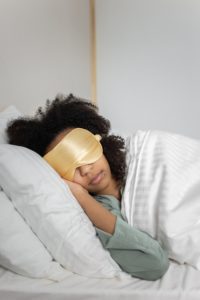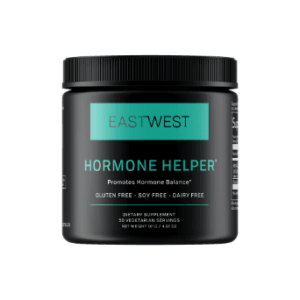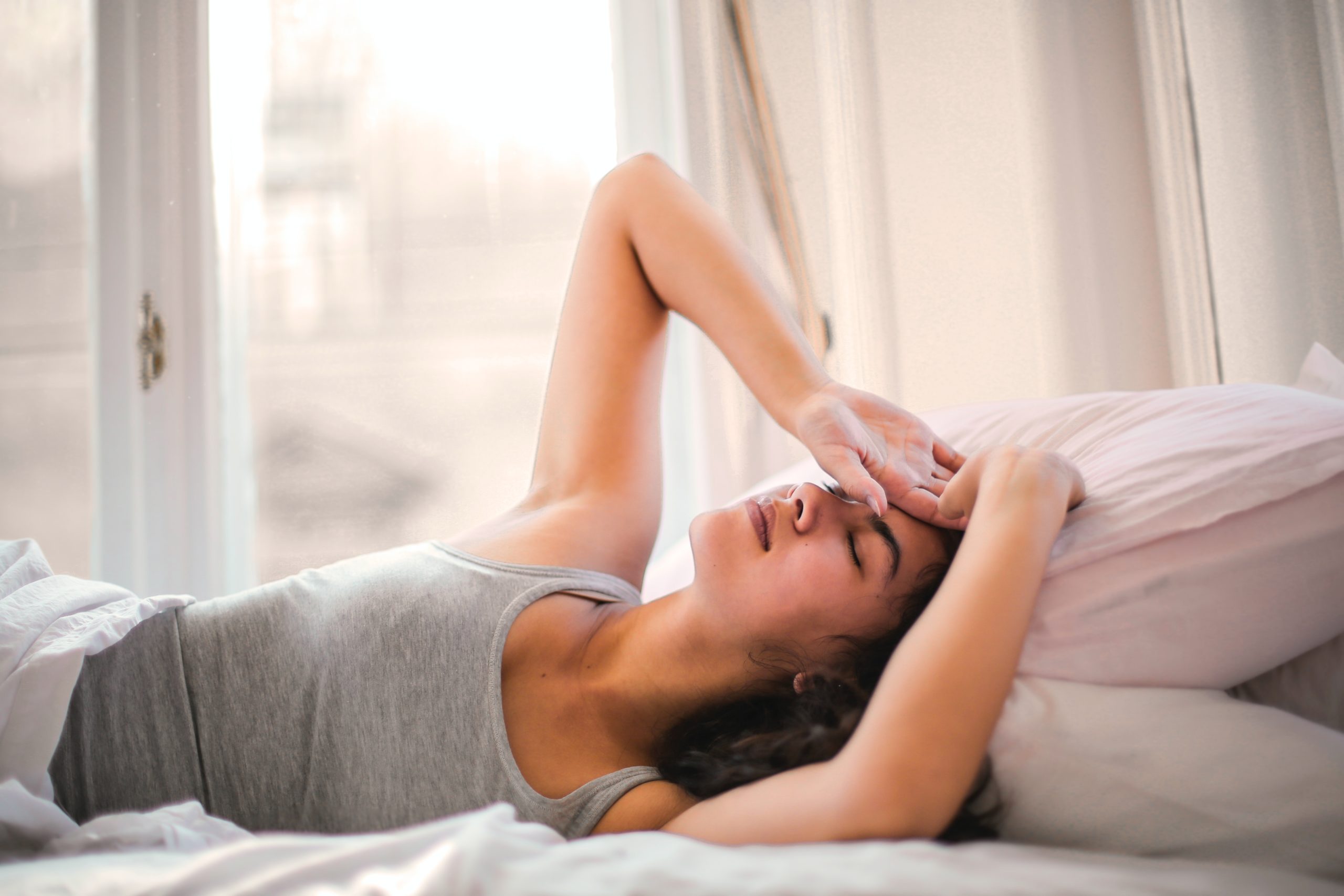One of the many concerning and frustrating symptoms women find they experience during the menopause is insomnia – a chronic inability to get to sleep and stay asleep each night. Lack of good sleep – in terms of both quality and quantity – can have a significant impact on our overall health, including hormone balance, appetite, weight gain and anxiety.
Studies conducted into how widespread sleep disturbances during menopause could be vary greatly between 28 to 63% – but even at the lower end of the scale, it’s still an issue that affects around a third of menopausal women.
Different types of insomnia
Sleep disturbances during the menopause come in a variety of forms and are common during all stages of the transitional period, including perimenopause and post-menopause.
Different types of sleep disturbances commonly experienced by women during the menopause include:
*Difficulty getting to sleep
*Difficulty staying asleep (awakening during the night)
*Early morning wakening
*Less total sleep time
*Overall quality of sleep (non-restorative)
*Overall feeling of wellbeing
*Overall functioning
*Sleepiness and fatigue during the day
Why does the menopause cause insomnia?
 The main reason for insomnia during menopause is hormonal fluctuations. During the menopause levels of estrogen decline, causing a host of sleep-disrupting symptoms including night sweats and hot flashes, anxiety and low mood, fatigue (feeling tired as soon as you wake up), bladder issues and joint pains. All of these issues can keep you awake at night – or cause difficulty getting to sleep. When we don’t sleep deeply through the night or suffer from interrupted sleep, we tend to feel tired and unwell during the day as sleep debt adds up. This causes a vicious cycle as the physical issues lack of sleep can bring irritability, fatigue and appetite changes during the day, as well as internal effects such as hormonal disruption, changes to our circadian rhythm (our internal clock which helps us wake up and fall asleep) and a negative impact on metabolism.
The main reason for insomnia during menopause is hormonal fluctuations. During the menopause levels of estrogen decline, causing a host of sleep-disrupting symptoms including night sweats and hot flashes, anxiety and low mood, fatigue (feeling tired as soon as you wake up), bladder issues and joint pains. All of these issues can keep you awake at night – or cause difficulty getting to sleep. When we don’t sleep deeply through the night or suffer from interrupted sleep, we tend to feel tired and unwell during the day as sleep debt adds up. This causes a vicious cycle as the physical issues lack of sleep can bring irritability, fatigue and appetite changes during the day, as well as internal effects such as hormonal disruption, changes to our circadian rhythm (our internal clock which helps us wake up and fall asleep) and a negative impact on metabolism.
Other factors we experience during the menopause also contribute to poor sleep or difficulty falling asleep – including the body producing lower levels melatonin and the influence of progesterone and estrogen on neural pathways.
Common causes of sleep disturbances during the menopause include:
*Night Sweats – hormonal changes can bring about intense temperature changes in the body, causing night sweats which can be uncomfortable and disruptive.
*Sleep Apnoea – Night sweats and hot flushes have been linked in some studies to the menopause – but have been shown to be more common in women who undergo surgically-induced menopause than those who experience natural menopause. Although research is still in its early stages, some experts think that sleep apnoea instances during menopause are linked to a decline in progesterone, which could obstruct the airway leading to difficulties when breathing.
*Restless Leg Syndrome – Restless Leg Syndrome (RLS for short), causes tingling and ‘creeping’ sensations in the legs, especially at night which cause the legs to twitch or create the urge to move, making it difficult to fall asleep. Women are twice as likely to experience this frustrating condition than men – and in a dedicated study, 69% of post-menopausal women said they felt their symptoms were worse than before the menopause. Supplementation with magnesium can help to ease RLS as it is sometimes due to a magnesium deficiency – you can find this in our Serenease blend.
Tips to ease insomnia during menopause
Tackling insomnia during the menopause requires a multi-faceted approach, which may include medication and/or supplementation and lifestyle changes. Some basic tips include:
*Switching off prior to bed: Remove electronic devices at least an hour before you plan to sleep – this includes phones, TVs and tablets.
*Cooling down: Make sure that the temperature in your room is cool (without being too cold) – open a window so that fresh air can circulate. A pillow mist incorporating peppermint, lavender and clary sage essential oils can help to ease the discomfort of hot flashes.
 *Books, baths and warm drinks: These old remedies really do work – especially when you combine all three. Taking a warm (not hot) bath or shower before bed can help to calm and prepare the body for sleep, especially if you incorporate some aromatherapy with relaxing oils. Consuming warm drinks prior to bed can also help you to relax (caffeine-free – try herbal teas and low-sugar cocoa). Lastly replacing scrolling or watching TV with reading a novel or magazine helps the brain to grow more tired and can distract from anxious thoughts.
*Books, baths and warm drinks: These old remedies really do work – especially when you combine all three. Taking a warm (not hot) bath or shower before bed can help to calm and prepare the body for sleep, especially if you incorporate some aromatherapy with relaxing oils. Consuming warm drinks prior to bed can also help you to relax (caffeine-free – try herbal teas and low-sugar cocoa). Lastly replacing scrolling or watching TV with reading a novel or magazine helps the brain to grow more tired and can distract from anxious thoughts.
*Breathwork and meditation: Start to incorporate a simple breathwork or meditation practice before bed to help promote feelings of calm and relaxation. Even 5 minutes initially can really help to reduce feelings of anxiety and slow down a racing mind ready for sleep.
*Write it down: If your mind is racing with anxious thoughts and you’re struggling to sleep, keep a pen and paper by your bed. Note down any thoughts that are making you anxious as they come up until you can eventually fall asleep naturally.
For gentle, natural support during the menopause, try our Hormone Helper blend. Scientifically developed using the ancient wisdom of Ayurveda, this proprietary blend features maca root and myo-inositol to rebalance and restore.






